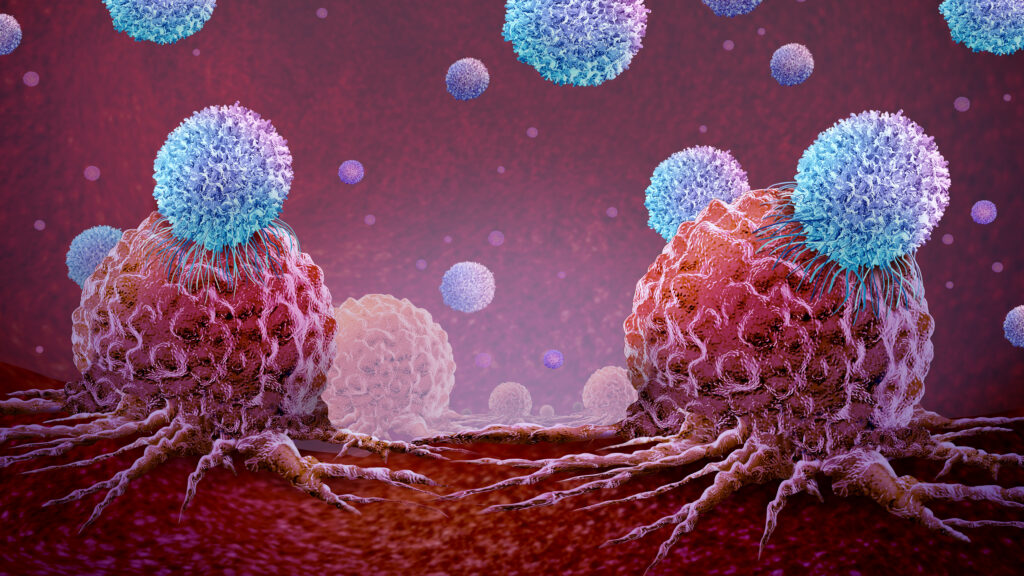This story first appeared in The Readout newsletter. Sign up for The Readout and receive STAT’s award-winning biotech news delivered straight to your inbox.
Well, President-elect Trump has nominated Robert F. Kennedy, Jr. as the country’s new health secretary — so buckle up, biotech. Could be an interesting ride. Also, we see that fertility can be preserved despite CAR-T treatment for autoimmune disease, and more.
advertisement
What biotech thinks about RFK Jr. as HHS secretary
President-elect Trump has tapped Robert F. Kennedy Jr., a longtime environmental lawyer and vaccine skeptic, for the nation’s top health care job, leading the Department of Health and Human Services.
The biotech community is reacting to the controversial selection. Biotech and pharma stocks tumbled yesterday afternoon when Trump’s plan was made public.
John LaMattina, the former president of Pfizer’s global research and development team and a board member of PureTech Health, told STAT: “How do you put an anti-vaxxer in charge of HHS? How do you come out of a major pandemic where vaccines save literally millions and millions of lives and now put somebody [like that] in charge of the whole system? … I don’t get it.”
advertisement
Others in the industry greeted the news with relative calm, despite misgivings. “He’s not my first choice, but I’m not ready to panic,” said Joe Edelman, CEO and portfolio manager of Perceptive Advisers, a biotech hedge fund. “I’d panic if I saw Lilly down 200 points. People tend to overreact and then things don’t change that much.”
STAT canvassed the biotech sector for reactions to RFK Jr.’s selection. Read more here.
CAR-T promising for autoimmune disease while perhaps preserving fertility
From STAT’s Allison DeAngelis: There’s an industry-wide effort underway to repurpose certain types of cancer cell therapies for autoimmune disease. The goal is to induce complete remissions by resetting a patient’s immune system. But there’s a caveat: Most options require patients — the majority of them women — to first undergo chemotherapy to deplete their native immune system, and this can impact fertility.
Some encouraging but early data being presented Sunday at a meeting of the American College of Rheumatology suggest fertility issues may be overcome. Researcher Georg Schett and Bristol Myers Squibb said one female trial participant conceived and gave birth to a healthy baby after receiving a CAR-T treatment for lupus. The baby was born early due to preeclampsia, and had normal B and T cell counts.
It’s too early to draw any conclusions about what this all means for patients’ fertility. Pregnancy and fertility were not study endpoints. But the healthy birth — and the fact that the trial participant has not had any disease recurrence — is worth noting.
“We’re incredibly excited about the initial results we are seeing with CD19 NEX-T and its potential to fundamentally transform the way we treat certain autoimmune diseases,” said Lynelle Hoch, Bristol Myers Squibb’s cell therapy president, in a statement.
EMA changes course and recommends Leqembi
A European Medicines Agency committee has reversed its initial decision and now recommends the Alzheimer’s drug Leqembi be approved. It says the benefits of the drug, which was developed jointly by Eisai and Biogen, outweigh the risks in some patients with early stage Alzheimer’s disease, STAT’s Andrew Joseph writes.
The decision followed an appeal from the companies, through what’s called a re-examination process. The final decision, however, lies with the European Commission. It typically aligns with EMA recommendations.
Why are AbbVie execs feeling the M&A blues?
Why are AbbVie executives feeling the M&A blues? What does it take to slice $12 billion from Amgen’s market value? And why are STAT’s D.C. correspondents working so hard?
We talk about all that and more on this week’s episode of the “The Readout LOUD,” STAT’s biotech podcast. It’s a “Chatty Cathy” episode! Elaine, Allison, and Adam lead off with a discussion about AbbVie’s M&A miscue following the failure of a closely followed schizophrenia drug. You’d hate us if obesity drugs weren’t mentioned, so we oblige with a tick-tock on what went down between Amgen and a Wall Street analyst who noted a possible safety issue with the obesity drug candidate MariTide.
Lastly, even though we promised to steer clear of politics this week, it proved to be impossible. We chat about RFK Jr., HHS, FDA, and other three-letter D.C. things, all tied to Trump’s next residency in the White House. Bonus: Adam rants about some FDA commissioner misinformation taking a tour around social media.
FDA scolds Merz over ‘misleading’ Instagram posts
The FDA has scolded Merz Pharmaceutical for making misleading claims on Instagram about the safety and effectiveness of an injectable treatment for smoothing facial lines, the fifth time this year the agency has taken a pharmaceutical company to task for its marketing.
The regulator criticized Merz for a few reasons concerning Xeomin, which is promoted as an alternative to Botox for combating wrinkle and frown lines, STAT’s Ed Silverman reports. The agency, for example, cited an Instagram post on an account belonging to Nate Berkus, a prominent interior designer, which highlighted various benefits but made it very difficult for consumers to read information about any risks.
More reads
-
‘Worst imaginable’ brain tumor yields, in some young people, to CAR-T therapy, STAT
- FDA commissioner: We need action and higher-quality research on ultra-processed foods, STAT
- Halozyme makes 2 billion euro buyout offer for drug developer Evotec, Reuters
-
Facing a dialogue with RFK Jr., a top FDA official mounts a public defense of vaccines, STAT

